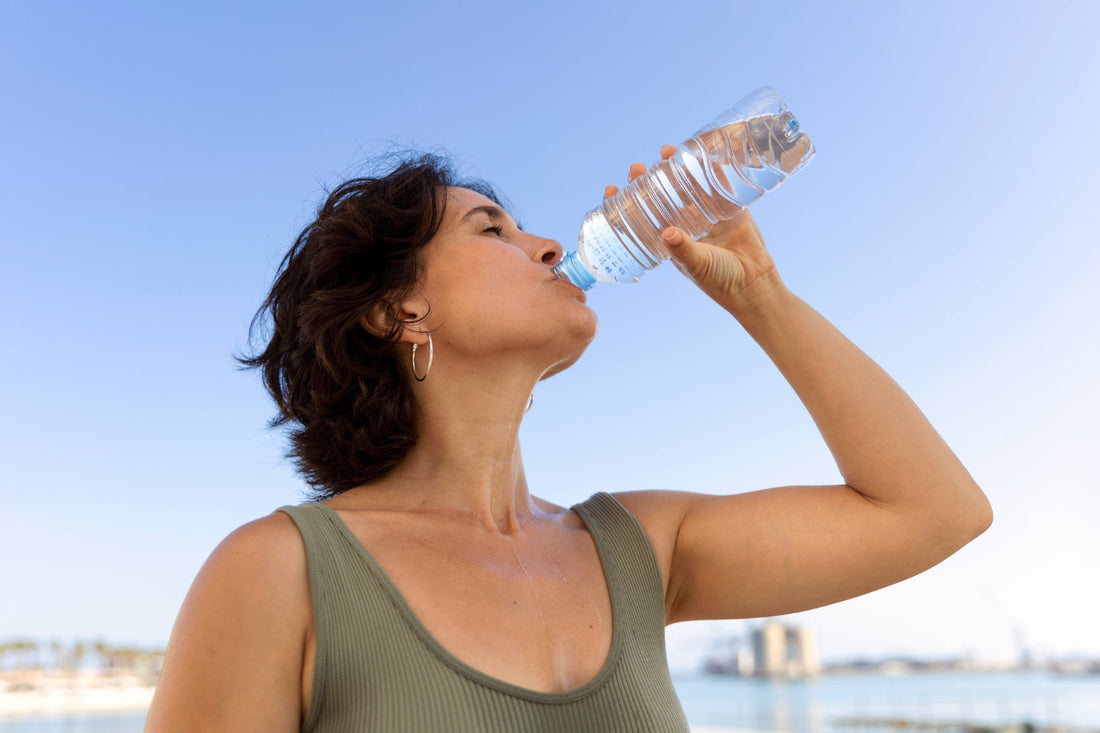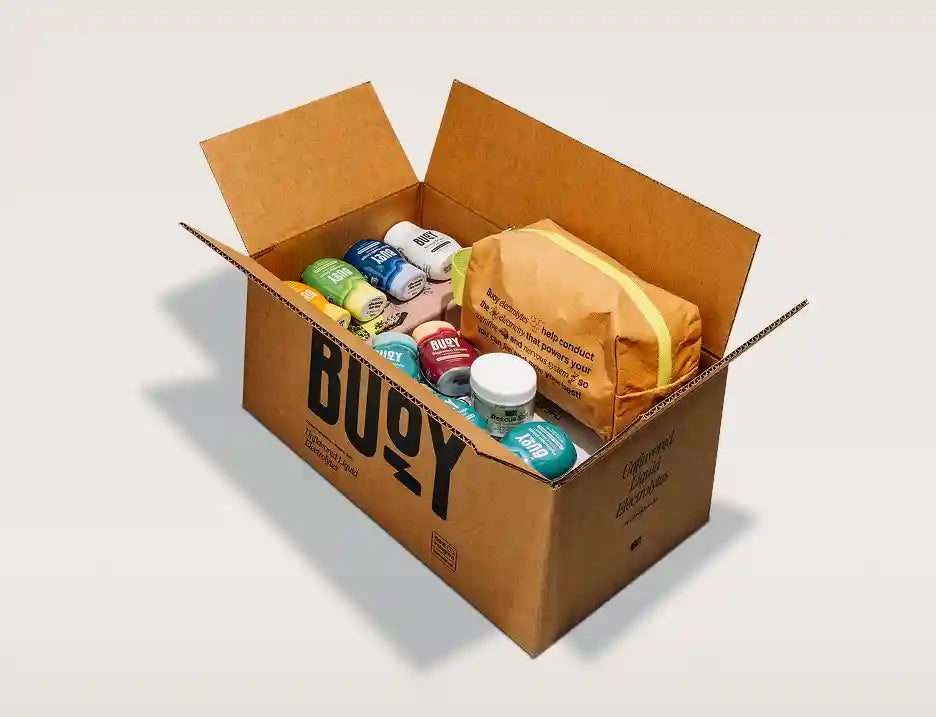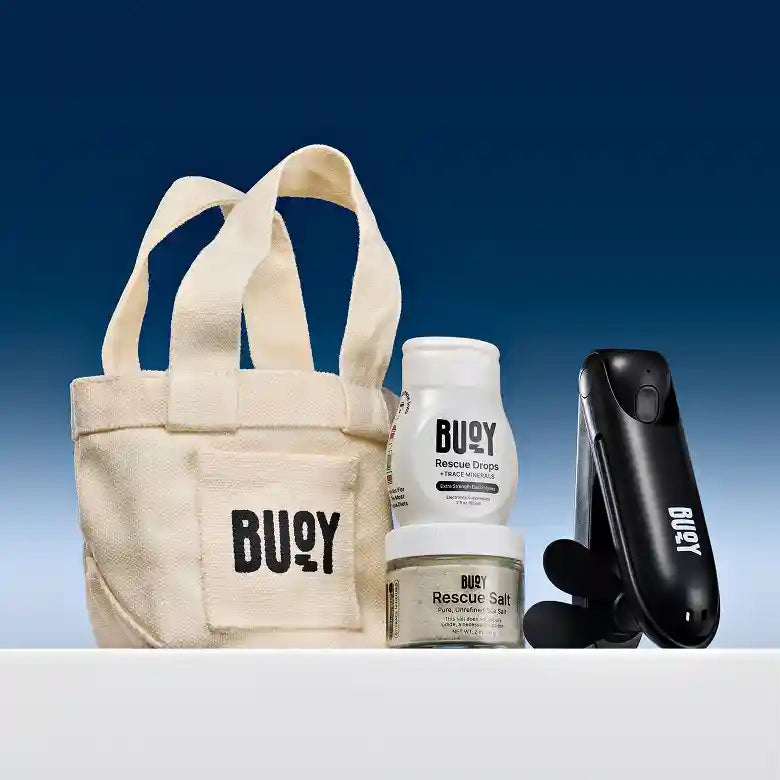
Seasonal Hydration Tips for Summer Heat and Winter Dryness
Share
No two seasons challenge hydration the same way. From sweating through long summer days to dry, heated winter interiors, your body’s fluid needs ebb and flow. Learn how to stay balanced with smart seasonal hydration tips, backed by science and tailored for real life.
Hydration is essential in every season, but few people realize just how much the weather affects fluid needs. When summer hits, our bodies lose water quickly through sweat - sometimes before we even realize we’re overheating. In winter, that dehydration continues in a much sneakier way. Heated indoor environments, dry air, and suppressed thirst responses can leave you parched without any obvious signs. And while it might feel like chugging water occasionally is enough, the reality is: it’s not.
Essential Takeaways
- Prep your hydration with morning fluids and regular reminders throughout the day.
- Use effective electrolytes, like Hydration Drops, which deliver clean, sugar-free hydration.
- Adapt your strategy each season - cooling hydration with cold fluids and water-rich foods in summer and sipping warm broths and teas in winter.
That’s where seasonal hydration strategies come in. Whether you're hiking in July or curled up with a book in January, tailoring your hydration routine to the climate helps you stay alert, support immune health, and keep every system - from digestion to cognition - running smoothly. Add a clean, sugar-free electrolyte solution like Buoy’s Hydration Drops to your daily routine, and you’ll turn a simple habit into a wellness tool.
- The Importance of Seasonal Hydration Tips
- Summer Hydration Tips for Staying Cool & Energized
- Winter Hydration Tips for Combating Dry Air
- Why Hydration Drops Are Your Seasonal Hydration MVP
- Seasonal Hydration Tips
The Importance of Seasonal Hydration Tips
Staying hydrated year-round isn't just about drinking more water. It's about understanding how your body's needs shift with the seasons. When temperatures spike, your body increases sweat output to regulate heat. This means you're losing more than just water. You're also flushing out vital electrolytes like sodium, potassium, and magnesium. If you’re not replenishing those losses, even mild dehydration can impact mood, energy, and endurance.
In the winter months, dehydration sneaks in under the radar. Cold weather naturally suppresses thirst by as much as 40% [2], meaning you may not feel the urge to drink even when your body needs it most. Indoor heating systems compound the issue by drying out the air, increasing respiratory fluid loss, and reducing skin moisture - all without visible sweating. If you wait until you feel thirsty in winter, you’re likely already dehydrated.
That’s why a seasonal approach to hydration is so important. By proactively adjusting your routine, whether through warm fluids in winter or strategic electrolyte support during summer , you’re not just drinking more. You’re hydrating smarter, reducing the risk of dehydration-related fatigue, cognitive sluggishness, and long-term health consequences. With Buoy’s Hydration Drops, you can support your body’s unique seasonal needs without added sugars, sweeteners, or synthetic ingredients.
Summer Hydration Tips for Staying Cool & Energized
1. Hydrate Early and Often
Begin hydration first thing in the morning as a foundation for the day. Front-loading fluids enhances digestion, mental clarity, and metabolic function [1]. During hot weather, sip water every 15–20 minutes during activity and rehydrate after with 150% of lost fluids.
Making hydration part of your morning routine primes your system to better handle heat later in the day, especially if you’re physically active or outdoors.
2. Use Reminders to Stay Consistent
Your body rarely signals dehydration until it's advanced. Use alarms, smart bottles, or visual cues to remind yourself to drink regularly throughout the day.
Consistency is key. Whether you’re at your desk or on the move, small sips spaced throughout the day help you stay ahead of dehydration instead of playing catch-up.
3. Choose Electrolytes without Sugar
Sweat flushes out vital electrolytes like sodium and potassium - plain water can’t replace them. Hydration Drops deliver precisely what your body needs, without added sugars, enhancing absorption and fluid retention.
Avoiding sugar helps prevent blood sugar crashes and supports more effective fluid uptake at the cellular level.
4. Eat Hydrating Foods
Incorporate fruits and vegetables rich in water content, such as watermelon, cucumbers, oranges, and grapes, to boost hydration naturally.
These foods not only provide water, but also come with natural electrolytes, fiber, and antioxidants that support overall health in the heat.
5. Avoid Dehydrating Triggers
Limit diuretics like caffeine and alcohol, especially in heat, as they can accelerate fluid loss.
While a morning coffee or afternoon cocktail might feel refreshing, they can undo hydration progress if not balanced with extra fluids and electrolytes.
6. Prime Before Activity
Hydrate with electrolyte-enhanced water before heading outdoors. This sets your body up for better performance and slower fatigue.
Think of it like fueling before a workout. Pre-loading electrolytes can help your body perform more efficiently and recover faster.
Winter Hydration Tips for Combating Dry Air
1. Sip Even When You Don’t Feel Thirsty
Cold temperatures suppress your thirst by up to 40% [2]. Warm indoor air and evaporating sweat both contribute to dehydration. Consistent sipping throughout the day is your guardrail.
Don't wait until your mouth feels dry. Build a regular sipping routine into your winter habits, especially during the heating season.
2. Warm Fluids Work Wonders
Warm beverages like herbal tea, broth, or hot water count toward hydration - and they’re easier to tolerate in cold weather [3]. Add Hydration Drops for extra mineral support.
These drinks are comforting, gentle on the stomach, and help keep your hydration levels steady even when cold weather dampens your appetite for cold water.
3. Hydrate with Meals & Produce
Hydrating soups, leafy greens, citrus, and cucumbers can fill your fluid tank and aid digestion - especially when dry winter air suppresses thirst [4].
Eating water-rich meals not only supports hydration, but also delivers nutrients that strengthen immunity during the colder months.
4. Track Intake in Dry Environments
Keep a refillable high-capacity bottle with you - especially in heated or windy environments - to prevent mindless dehydration.
Seeing your bottle nearby acts as a visual reminder, helping you maintain intake during long indoor stretches.
5. Counteract Hidden Fluid Loss
Dehydration in winter can come from multi-layered sweat, respiration, or indoor heat. A proactive hydration strategy - before, during, and after activity - matters even more [5].
Whether you’re skiing, walking, or commuting, keeping your hydration topped up protects your joints, muscles, and mood.
Why Hydration Drops Are Your Seasonal Hydration MVP
Whether the mercury’s climbing or indoor heat is low, Hydration Drops are your go-to. Here’s why they fit both seasons:
-
Clean electrolytes, zero sugar or flavor - so hydration works faster, not harder.
-
Ultra-portable - perfect for handbags, suit pockets, or desk drawers.
- Versatile usage - add to water, tea, soups, or smoothies depending on the season.
Adding a squeeze of Hydration Drops to your favorite drink enhances absorption and replenishes vital minerals without disrupting your routine. Whether your drink is warm or cold, the drops mix instantly and don’t alter taste - making them ideal for everyday use.
Seasonal Hydration Tips
Seasonal hydration requires strategy. Not just water. Your body’s needs shift dramatically from sun-drenched days to dry winter nights. Simple habits - like front-loading fluids, using smart reminders, choosing clean electrolytes, and adapting your beverages - add up to better wellness, energy, and performance.
Hydration Drops make it easy to meet your body's needs - whether you're cooling off in summer or coping with winter dryness. Stay responsive, stay hydrated, and let every season support your best.
References
-
“The Benefits of Front-Loading Your Water Intake, According to Dietitians,” EatingWell, Aug 17, 2025.
-
“Winter hydration is important for good health,” Oklahoma State Univ. Extension, Oct 16, 2024.
-
“The Importance of Winter Hydration,” Massachusetts General Hospital, Dec 2, 2022.
-
“Hydration in Cold Weather,” Penn State Extension, Jan 7, 2025.
- “Winter Hydration Tips: How to Stay Hydrated in Cold Weather,” Working Against Gravity, Feb 19, 2025.




